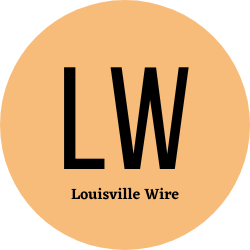What is Opioid Addiction, and How Can It Be Helped?
by siteadmin

Addiction can be a chronic, relapsing disorder that disrupts your daily life and causes psychological and physical difficulties.
The reward circuit in the brain is activated by opioids, which can produce feelings of pleasure and euphoria. The high you get from opioids is temporary and can wear off quickly.
Physical dependence
If someone is addicted to opioids, it's called "physical dependence". To feel the same effects, the person will require more of the drug.
People who stop taking opioid medication may experience withdrawal symptoms. These include nausea, vomiting and muscle and bone pain.
Each person experiences withdrawal symptoms in a different way. Different symptoms can affect different people. Some may experience withdrawal symptoms for a few days, while others can last several months or years.
While tolerance and physical dependence can be side effects of regular drug use, they don't necessarily mean that you will become addicted to the substance. Although dependence and addiction can be misunderstood, it is essential to understand their differences.
Need to satisfy your hunger?
The part of addiction that includes opioid cravings is difficult to manage.
Cravings can last for up to an entire hour and can be very intense. They can also be experienced in particular places or with specific people.
You can combat opioid cravings by taking medications like maintenance therapy (MAT). This medication helps to suppress your urge to use opioids. Buprenorphine, methadone and other forms of maintenance therapy (MAT) are common.
Along with medication assisted therapy (MAT), patients may also be taught coping skills that will help them resist using drugs. They can use distraction techniques and take care of their own health. These techniques can help reduce the risk of relapse in treatment and aid people recovering from opioid addiction.
Overdose
Opioids cause a brain circuit to be activated that is linked to reward processing. This leads to euphoria, or a feeling of "high". This connection can be damaged and you may become dependent on the drug.
It is possible to develop tolerance to the drug. This means that you will need more to get the same effect as before or to prevent withdrawal symptoms. People who abuse prescription opioids can become addicted to heroin, or illegally made fentanyl. This is 50-100 times stronger than pharmaceutical fentanyl.
An overdose is when someone uses opioids excessively or too fast. If this happens suddenly, your breathing may become slow and then stop altogether. This is called "death rattle".
Treatment
For those suffering from opioid addiction, there are many options. These include medications, counseling and medication to treat the underlying cause of opioid addiction.
Opioids may be used to reduce cravings or withdrawal symptoms. You can then focus on the lifestyle changes that will help you recover. You should remember that opioids do not cure addiction.
As part of a complete treatment plan, doctors may recommend family therapy and behavioral therapies in addition to medication. These therapies treat the underlying causes of addiction and teach patients effective strategies for managing stress, anxiety, depression.
https://anewstartclinics.com/index.php/locations/henderson
114 Franklin St, Henderson, KY 42420
Addiction can be a chronic, relapsing disorder that disrupts your daily life and causes psychological and physical difficulties. The reward circuit in the brain is activated by opioids, which can produce feelings of pleasure and euphoria. The high you get from opioids is temporary and can wear off quickly. Physical dependence If someone is addicted…
Recent Posts
- The Benefits of Regular Haircuts for Hair Health
- Porta Potty Rental Oregon: What Makes a Good Rental Service
- R.C Fence LLC Expands Its Reach as a Premier Fencing Company in Rock Hill, SC
- How to Choose the Best Exterminator in Cleveland for Your Pest Problem
- Top Signs Your Office Needs a Professional Commercial Cleaning Service
